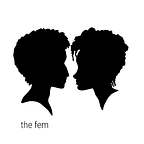What Our Editors Read This Week (6/3)
An Open Letter To The Writers Speaking Out Against Trump by Daniel José Older in Electric Lit
Because this line, “American history, despite periods of nativism and bigotry, has from the first been a grand experiment in bringing people of different backgrounds together, not pitting them against one another,” from the Writers Against Trump statement is not only empirically false, it’s a continuation of the ongoing legacy of sanitized lies America has shoved down its own throat since its creation;
Let’s Talk: What is Easy and What is True? in Gay YA by Adriana L
It’s not necessarily a failure of imagination on the part of authors, but on the part of readers and reviewers. What is popular, what is recommended ten thousand times over, is just the tip of the iceberg. We can’t see queer rep as a quota to be met with one best-selling book here and there, but we must keep searching for the queer YA that bridges the gap between these two extremes, that occupies that middle ground of fluctuating emotions that so many experience on a daily basis. We cannot perpetuate the idea that a queer character’s validity boils down to whether their identity is a source of suffering or a source of adversity that can be easily overcome.
Single Women Are Our Most Potent Political Force by Rebecca Traister in The Cut
It is a radical upheaval, a national reckoning with massive social and political implications. Across classes, and races, we are seeing a wholesale revision of what female life might entail. We are living through the invention of independent female adulthood as a norm, not an aberration, and the creation of an entirely new population: adult women who are no longer economically, socially, sexually, or reproductively dependent on or defined by the men they marry.
Who Killed Virginia Woolf? by Karrie Higgins
He meant second coming in body, not mind.
But I saw the dissociation in that portrait, how she floated out of her body. That’s what he sees, too, I thought. He sees I am not all here.
The Black Journalist and the Racial Mountain by Ta-Nehisi Coates in The Atlantic
This permission serves to both keep black journalists and writers from competing in venues beyond the sphere “of race and racism,” and allow whites to celebrate “their own enlightenment and generosity.”
Identity politics — work that explores race, class, gender, and (other) strands of identity — is what I was born into, growing up female in a mixed-race family. I think it’s a useful term for thinking about works of art, yet not so useful for creating works of art.
